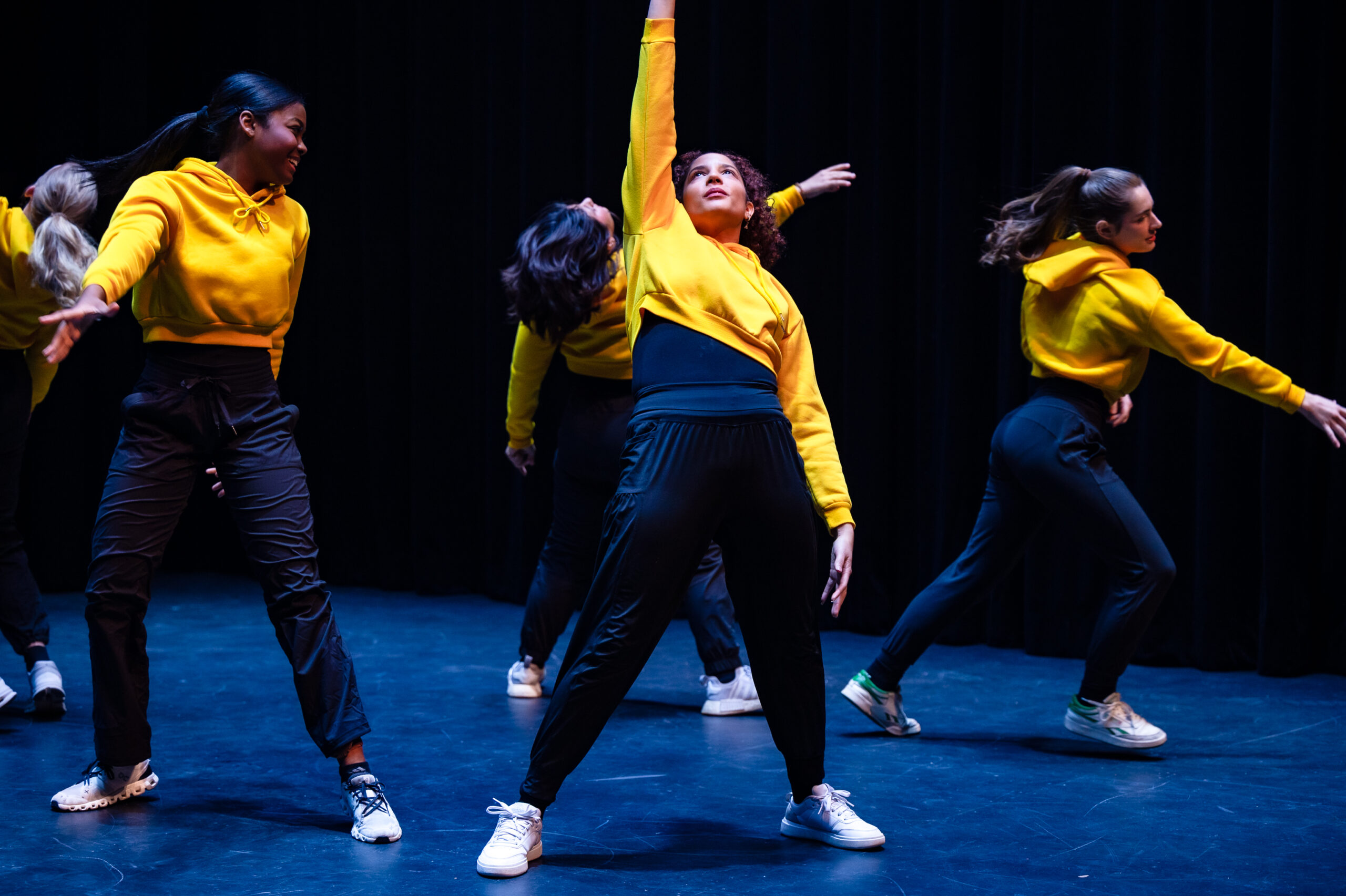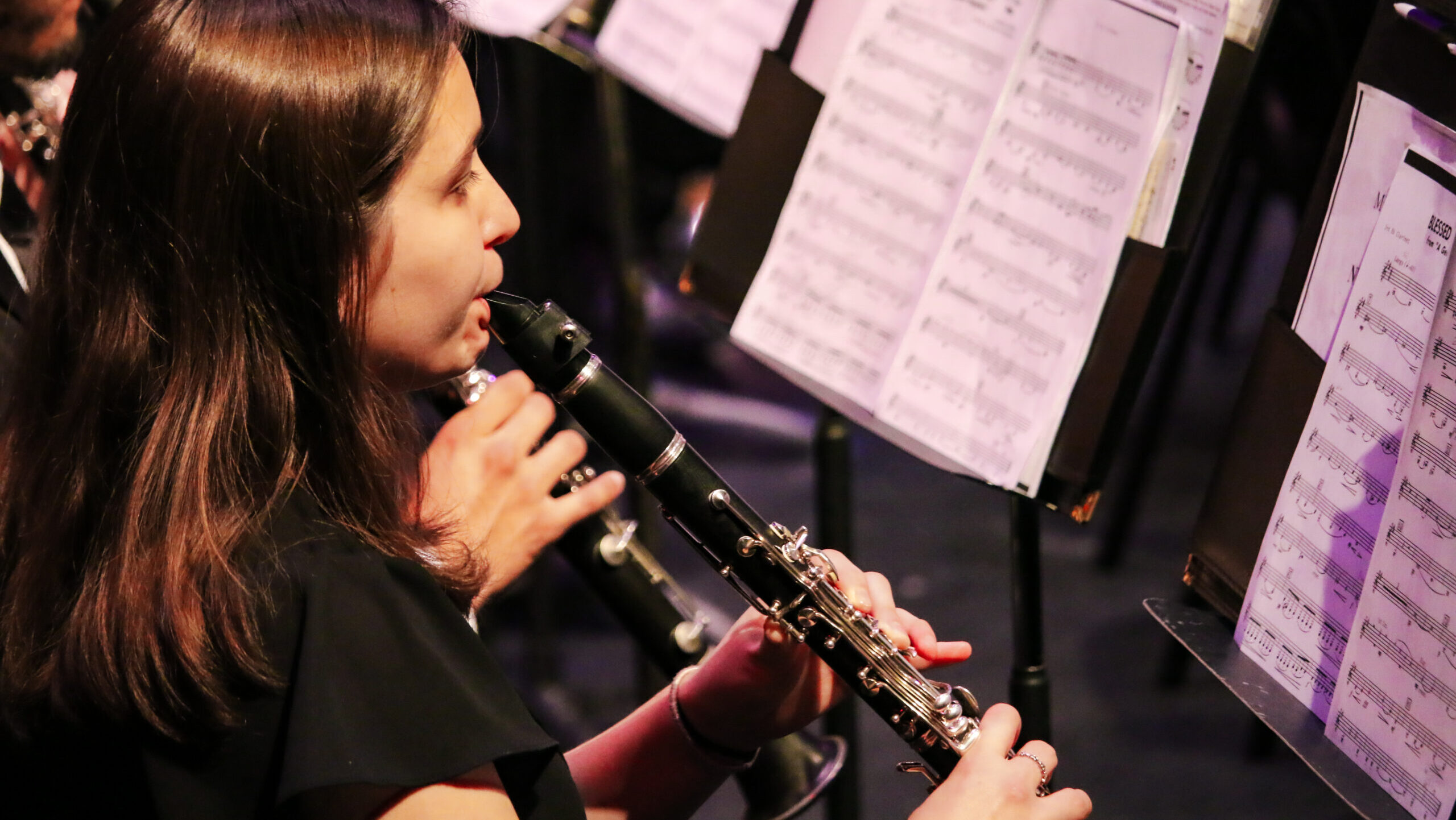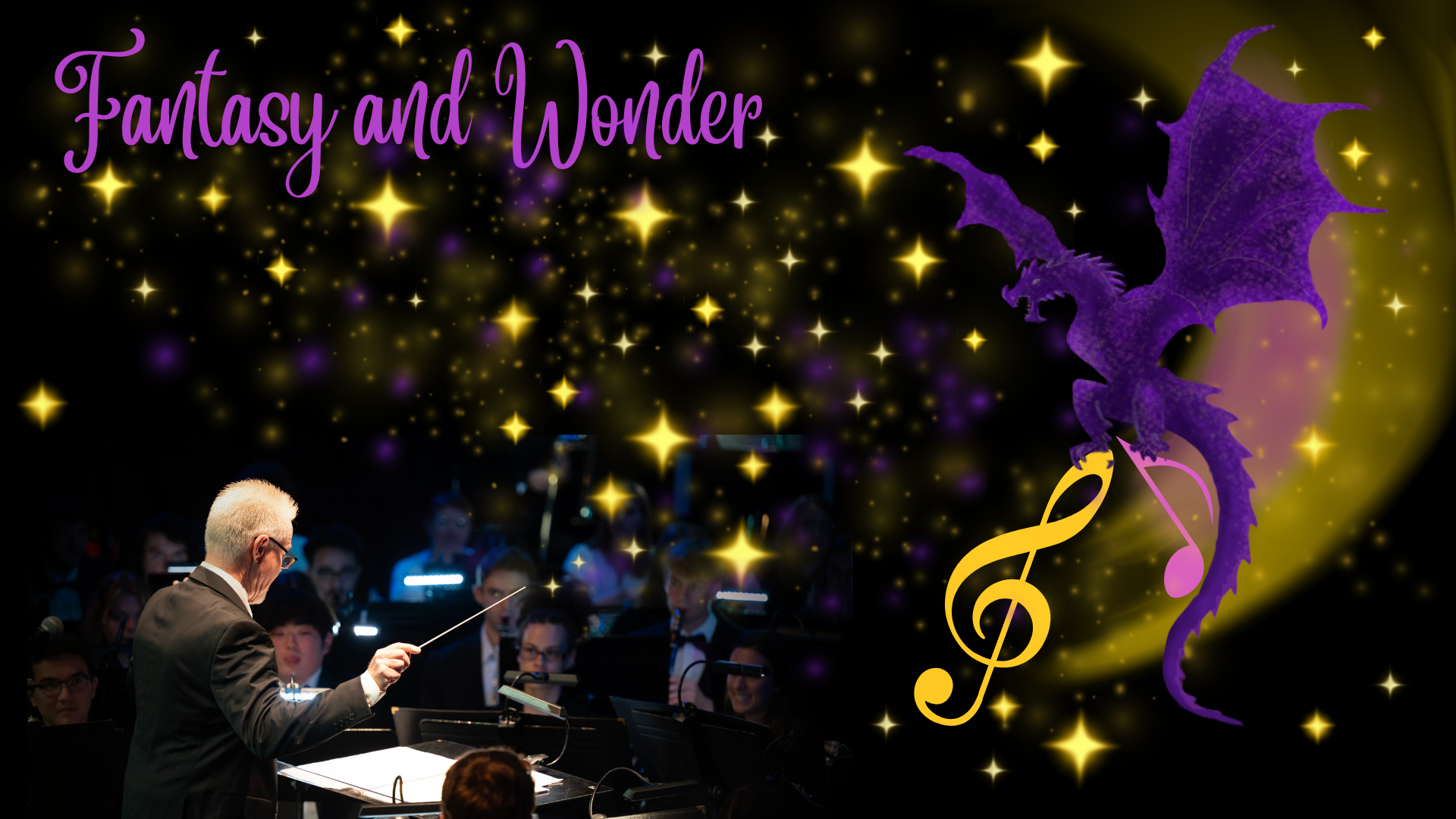The Way from Birmingham: MLK’s Letter from a Birmingham Jail
March 30, 2025
4 p.m.
Stewart Theatre
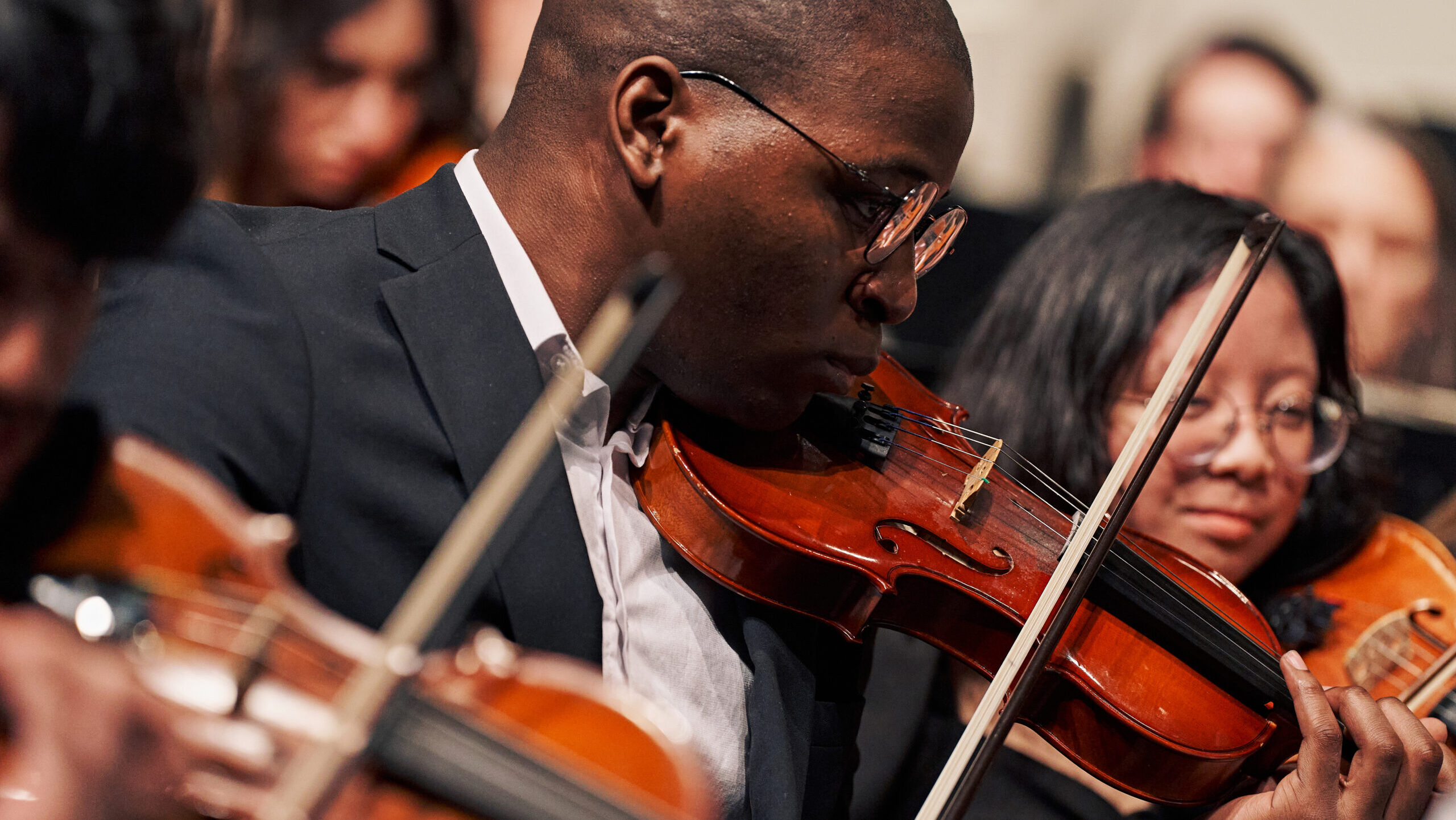
presents
The Way from Birmingham: MLK’s Letter from a Birmingham Jail
Raleigh Civic Chamber Orchestra
With
NC State Chorale
Peter Askim
Conductor
Nathan Leaf
Composer
Jason Miller
NC State English Professor: Guest Speaker
PERFORMANCE OVERVIEW
Jump to a specific spot in the program.
PROGRAM
| Egmont Overture, Op. 84 |
| Ludwig van Beethoven |
| Knell |
| Niloufar Nourbakhsh |
| Selections from The Seven Last Words of Christ, Hob. XX:1 |
| Franz Joseph Haydn |
Sonata 2: Grave e cantabile
Il Terremoto. Presto e con tutta la forza
| Breathe |
| Carlos Simon |
| Jason Miller, Guest Speaker |
| The Way from Birmingham for Chorus and Chamber Orchestra (World Premiere) |
| Nathan Leaf Featuring the NC State Chorale |
Texts
Mvt. 1
In any non-violent campaign there are four basic steps: (1) collection of the facts to determine whether injustices are alive; (2) negotiation; (3) self-purification; and (4) direct action.
These are the hard, brutal, and unbelievable facts.”
— Letter from the Birmingham Jail
Facts are stubborn things; and whatever may be our wishes, our inclinations, or the dictums of our passions, they cannot alter the state of facts and evidence.
— John Adams, in defense of the British soldiers on trial after the Boston Massacre in 1770.
Mvt. 2
Si quis te percusserit in dexteram maxillam tuam, praebe illi et alteram.
[Translation: If anyone strikes you on the right cheek, turn the other also.]— The Bible, Matthew 5:39
See, I am sending you out as sheep among wolves.
— The Bible, Matthew 10:16
We had no alternative except that of preparing for direct action, whereby we would present our very bodies as a means of laying our case before the conscience of the local and national community.
We were not unmindful of the difficulties involved. So we decided to go through a process of self-purification. We started having workshops on nonviolence and repeatedly asking ourselves…“Are you able to accept blows without retaliating?”
— Letter from the Birmingham Jail
Mvt. 3
If I give away all my possessions, and if I hand over my body so that I may boast, but do not have love, I gain nothing.
— The Bible, 1 Corinthians 13: 3
One who breaks an unjust law must do it openly, lovingly, and with a willingness to accept the penalty…“Are you able to endure the ordeals of jail?”
— Letter from the Birmingham Jail
…a more perfect union…
— The Constitution of the United States
…we need not follow the “do-nothingism”…or the hatred and despair…there is the more excellent way of love and nonviolent protest.
— Letter from the Birmingham Jail
Composer’s Notes
“Injustice anywhere is a threat to justice everywhere.”
“Birmingham is probably the most thoroughly segregated city in the United States. Its ugly record of police brutality is known in every section of this country. Its unjust treatment of Negroes in the courts is a notorious reality. There have been more unsolved bombings of Negro homes and churches in Birmingham than any city in this nation. These are the hard, brutal and unbelievable facts.”
“I have consistently preached that nonviolence demands that the means we use must be as pure as the ends we seek. So I have tried to make it clear that it is wrong to use immoral means to attain moral ends. But now I must affirm that it is just as wrong, or even more so, to use moral means to preserve immoral ends…T.S. Eliot has said that there is no greater treason than to do the right deed for the wrong reason.”
— from Letter from the Birmingham Jail
It is not possible to describe in a few quotes, paragraphs, or even a 12-minute musical work the full depth and breadth of Dr. King’s Letter – some might call it an epistle – From the Birmingham Jail. For that, one would need to read the letter in full.
It takes less than an hour to read, and I encourage everyone to do so. You won’t regret using your time for this purpose. Composed from a jail cell in 1963, it was written not only for the ages, but to actual, specific people. It was a response to a group of church leaders in Birmingham, Rev. King’s ministerial colleagues, who had issued a public statement describing the racial justice protests for which he was being held as “unwise and untimely.”
The Way from Birmingham attempts to bring to the fore the principles Dr. King used to guide his work. What he described as “the more excellent way” was rooted in his Christian beliefs and his hopes in America’s founding principles of justice, equality, freedom, and pursuit of societal improvement for the benefit of everyone. His letter is filled with historical, scholarly, and Biblical references that illuminate his thinking and ground his methods in the shared beliefs of the community. In fact, the term “more excellent way,” which has a prominent role in this composition, comes from 1 Corinthians, the last verse of chapter 12, which leads directly to the famous chapter 13 about love.
“Love is patient, love is kind, love is not envious or boastful, or arrogant, or rude…” is only a small part of what this chapter defines love to be. From the original Greek word agape, the highest form of love, the chapter describes an expansive understanding of selfless, unconditional love and care for all people. Some translations use the word charity instead of love. Dr. King used the words “the more excellent way”, a phrase he knew the letter recipients would understand (and which is curiously similar to an oft-repeated phrase in the Preamble of our nation’s Constitution) as one of many ways to root his letter in what he believed were essential principles for the society he sought to bring into being. Principles he believed his movement needed to follow if they were to truly succeed, and for which he and his colleagues were willing to pay a heavy personal cost. Principles that his opponents claimed they believed in, and through which he tried to offer them a path to reform their actions. Principles that have been upheld by many in the past, including John Adams when he risked his future career and took on a very unpopular public task amidst the fervent revolutionary passions of the time. Principles that endure and continue to show us the way.
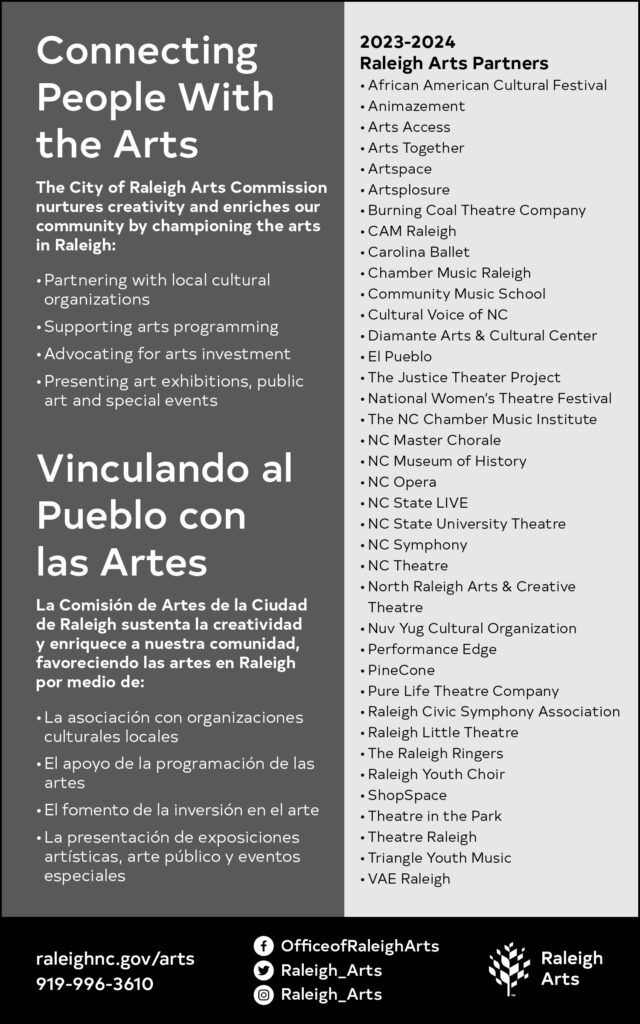
FACULTY AND GUEST ARTISTS
Peter Askim
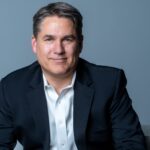
Active as a composer, conductor and collaborative connector, Dr. Peter Askim is the Artistic Director of The Next Festival of Emerging Artists and the conductor of the Raleigh Civic Symphony and Chamber Orchestra, as well as Director of Orchestral Activities at North Carolina State University. He was previously Music Director and Composer-in-Residence of the Idyllwild Arts Academy Orchestra. He has also been a member of the Honolulu Symphony Orchestra and served on the faculty of the University of Hawaii-Manoa, where he directed the Contemporary Music Ensemble and taught theory and composition.
As a conductor, he has led the American Composers Orchestra, Knoxville Symphony and Vermont Symphony, among others, and is known for innovative programming, championing the work of living composers and his advocacy of underrepresented voices in the concert hall. He has conducted premieres by composers such as Brett Dean, Aaron Jay Kernis, Allison Loggins-Hull, Jessica Meyer, Nico Muhly, Rufus Reid, Christopher Theofanidis, Jeff Scott and Aleksandra Vrebalov, and led the American premiere of Florence Price’s Ethiopia’s Shadow in America. His work was featured on HBO and National Public Radio conducting folk-rock legend Richard Thompson’s soundtrack for The Cold Blue. He has collaborated with such artists as Miranda Cuckson, Matt Haimovitz, Vijay Iyer, Jennifer Koh, Nadia Sirota, Sō Percussion and Jeffrey Zeigler, and the bluegrass band Balsam Range. As a composer, he has been called a “Modern Master” by The Strad and has had commissions and performances from such groups as the Tokyo Symphony Orchestra, the Honolulu Symphony, the Stavanger Symphony Orchestra, Cantus Ansambl Zagreb and the American Viola Society.
With the creation of The Next Festival of Emerging Artists, Askim founded a festival dedicated to the next generation of performers, composers and choreographers. Founded in 2013, the Festival encourages young artists, ages 20-30, to focus on artistic development, entrepreneurial career strategies and the music of living composers. The Next Festival Composer and Composer/Choreographer workshops connect early-career performers, composers and choreographers in innovative and highly collaborative laboratory for the creation of new works. The Festival has been awarded grants by the Amphion, ASCAP and BMI foundations, and the Copland Fund for Music. Immediately recognizing the devastation of the COVID pandemic on young artists, he began providing free workshops, masterclasses and resources to support young artists through challenging times beginning in March of 2020. Through the Festival, he has presented over 50 Guest Artists, including Pulitzer, Grammy, and MacArthur award winners.
With the Raleigh Civic Orchestras, Askim has pioneered collaborative, multimedia concert events focused on social and environmental justice and has programmed a newly commissioned world premiere on each concert for the last seven seasons. Themes have included Martin Luther King, Jr.’s North Carolina “I Have A Dream” speech and a work for Virtual Reality and orchestra highlighting the Women’s Suffrage Movement and the Voting Rights Act. During the pandemic, Askim premiered nine new works by composers harnessing latency and technology in innovative approaches to distance collaboration. Under his direction, the orchestras have received multiple grants recognizing diversity in programming, including from New Music USA and the Women’s Philharmonic Association.
Carlos Simon
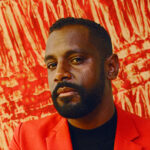
“My dad, he always gets on me. He wants me to be a preacher, but I always tell him, ‘Music is my pulpit. That’s where I preach,’” Carlos Simon reflected for The Washington Post. Having grown up in Atlanta, with a long lineage of preachers and connections to gospel music to inspire him, GRAMMY-nominated Simon proves that a well-composed song can indeed be a sermon. His music ranges from concert music for large and small ensembles to film scores with influences of jazz, gospel, and neo-romanticism.
Simon is the current Composer-in-Residence for the John F. Kennedy Center for the Performing Arts and frequently writes for the National Symphony Orchestra and Washington National Opera. Simon also holds the position of inaugural Composer Chair of the Boston Symphony Orchestra, the first in the institution’s 143-year history.
In the 2024/25 season, Simon will have premiere performances with the National Symphony Orchestra, Boston Symphony Orchestra, BBC Symphony Orchestra for the Last Night of the Proms (in his BBC Proms commissioning debut), Jacksonville Symphony Orchestra, Cincinnati Pops Orchestra, Carnegie Hall for the National Youth Orchestra of the USA. The season also features the premiere of Simon’s Gospel Mass with Gustavo Dudamel and the LA Philharmonic, a work reimagining the traditional mass with gospel soloists and choir, with visual creations from Melina Matsoukas (Beyoncé Formation, Queen and Slim).
This follows previous commissions from the likes of the San Diego Symphony Orchestra, Washington National Opera (in collaboration with Mo Willems), New York Philharmonic and Bravo! Vail, Minnesota Orchestra, American Ballet Theatre, and Detroit Symphony Orchestra.
As well as his composition work, Simon frequently curates concert programmes, which often highlight his own music as well as that of close collaborators. Curation concerts have recently been programmed by Atlanta Symphony Orchestra, Boston Chamber Players, Tanglewood Festival for Contemporary Music, and the Kennedy Center for the Performing Arts. Simon also curated and arranged Coltrane: Legacy for Orchestra, a new project co-commissioned by TO Live (for the Toronto Symphony Orchestra) and the San Francisco Conservatory of Music, in partnership with the Coltrane Estate.
August 2024 saw the release of Simon’s first full-length orchestral album, Four Symphonic Works, comprised of live concert recordings by the National Symphony Orchestra from the Kennedy Center Concert Hall, conducted by Gianandrea Noseda. Simon also composed the original soundtrack for the PBS documentary Shame of Chicago: Shame of the Nation, which was released as a digital album in April 2024.
In September 2023, Simon released two albums on Decca. Together is a compilation of solo and chamber compositions and arrangements featuring Simon and guests such as J’Nai Bridges, Randall Goosby, Seth Parker Woods and Will Liverman. The work draws on Carlos’ personal experience as an artist to highlight the importance of heritage and identity, and the power of collaborative music-making.
Simon also released the live premiere recording of brea(d)th, a landmark work commissioned by Minnesota Orchestra and written in collaboration with Marc Bamuthi Joseph, conducted by Jonathan Taylor Rush. “Arguably the most important commission of Simon’s career so far” (New York Times), brea(d)th was written following George Floyd’s murder as a direct response to America’s unfulfilled promises and history of systemic oppression against Black Americans.
Simon was nominated for a 2023 GRAMMY Award for Best Contemporary Classical Composition for his previous album, Requiem for the Enslaved. The requiem is a multi-genre musical tribute to commemorate the stories of the 272 enslaved men, women, and children sold in 1838 by Georgetown University, released by Decca in June 2022. This work sees Simon infuse his original compositions with African American spirituals and familiar Catholic liturgical melodies, performed by Hub New Music Ensemble, Marco Pavé, and MK Zulu.
Acting as music director and keyboardist for GRAMMY Award winner Jennifer Holliday, Simon has performed with Boston Pops, Jackson Symphony, and St. Louis Symphony. He has also toured internationally with soul GRAMMY-nominated artist Angie Stone and performed throughout Europe, Africa, and Asia.
Simon earned his doctorate degree at the University of Michigan, where he studied with Michael Daugherty and Evan Chambers. He has also received degrees from Georgia State University and Morehouse College. He is an honorary member of Phi Mu Alpha Music Sinfonia Fraternity and a member of the National Association of Negro Musicians, Society of Composers International, and Pi Kappa Lambda Music Honor Society. He has served as a member of the music faculty at Spelman College and Morehouse College in Atlanta, Georgia and now serves as Associate Professor at Georgetown University. Simon was also a recipient of the 2021 Sphinx Medal of Excellence, the highest honor bestowed by the Sphinx Organization to recognize extraordinary classical Black and Latinx musicians, and was named a Sundance/Time Warner Composer Fellow for his work for film and moving image.
Jason Miller

Dr. Jason Miller is Distinguished Professor of English whose research interests include twentieth-century American Poetry, American Literature, literary theory, and pedagogy. An overview of his research appears as the ten-page cover story in NC State Magazine.
His expertise on Martin Luther King, Jr.’s “I Have a Dream” speech was featured on the Smithsonian podcast “King’s Speech” where he was in conversation with Kevin Young, Director of the Smithsonian’s National Museum of African American History and Culture. His research on MLK and Dorothy Cotton featured in NPR, New York Daily News, Our State Magazine, The News and Observer, The Conversation, WUNC News, Capital Tonight with Tim Boyum, and on The State of Things. Poet Kwame Alexander issued a nationwide writing challenge on NPR in 2021 based on his research.
His newest public research on MLK is spotlighted in Walter Magazine’s The King’s Speech, The Day King Addressed Campus— and the Klan Marched on Raleigh, and in Margaret E. Baker’s short documentary film and digital installation King and the Klan: A Visual Experience.
That digital project and research were bannered atop the NC State homepage, and featured stories for Technician, CBS 17 and ABC 11.
His latest online digital project is Backlash Blues: Nina Simone and Langston Hughes. New North Carolina connections between the poet and singer have recently been featured as the cover stories in both Asheville’s Mountain Xpressand NC State Magazine. He served as a Fellow at the National Humanities Center in 2022-23 to continue work on his forthcoming book documenting the relationship between the famous poet and singer. Featuring songs by Sandra Dubose, he has lectured and then been in discussion with NC Poet Laureate Jaki Shelton Green at the North Carolina Museum of Art to celebrate Nina Simone’s birthday.
Complete with 36 photographs, his biography on Langston Hughes is available from the University of Chicago Press. It has recently been featured in the piece Langston Hughes: International Superstar.
His project “When MLK and the KKK Met in Raleigh” documents the KKK’s 1,800 person march down Fayetteville Street on the day Dr. King spoke in Reynolds Coliseum on July 31, 1966. Startling never-before-developed photographs have been digitized from original negatives. These were first displayed at a gallery exhibit at the African American Cultural Center and are now permanently available for view in the iPearl Immersion Theater at Hunt Library. His discovery of never-before-seen film footage of King speaking while the KKK protests was featured on WRAL TV.
His previous book Origins of the Dream: Hughes’s Poetry and King’s Rhetoric traces Martin Luther King, Jr.’s use of Langston Hughes’s poetry in his sermons and speeches from 1956-1968. This work is also the subject of a documentary film project currently being made in partnership with the Southern Documentary Fund. The film project is highlighted as part of Experiencing Kingin an event headlined by actor Danny Glover. His scholarship on Hughes and King was exhibited at Yale University’s historic Beinecke Library.
His King’s First Dream project has made the first ever recording of Dr. Martin Luther’s King “I Have a Dream” speech available online at kingsfirstdream.com. This speech took place in Rocky Mount, North Carolina a full nine months before King’s famous speech at the March on Washington in 1963. The project has received coverage on the CBS and ABC National Evening News, the BBC, The Rachel Maddow Show, and in USA Today Articles have been published and translated on every continent. Dr. Miller was also interviewed on NPR and live on CNN.
His webinar for the National Humanities Center is F.B. Eyes on Langston Hughes and Martin Luther King, Jr.
In conjunction with the film Plain Sense, and the annual Don Welch Teacher’s Conference, his online project the Don Welch Digital Archive is now live. Curated from over 5,000 pages of personal items, the archive features film, photographs, audio, poetry drafts, teaching lessons, postcards, and personal letters between the poet and figures such as William Stafford. One highlight includes a thirty-year correspondence with U.S. Poet Laureate Ted Kooser.
As a published poet, his work has appeared in such places as Walter Magazine,Poetry East, American Book Review, The South Carolina Review, and Smartish Pace.
He has written articles in Walter Magazine for the general public on topics such as The Search for Hannah Crafts.
Dr. Miller completed his undergraduate and MA degrees at the University of Nebraska at Kearney and his PhD at Washington State University where he served as the English Department’s Charles Blackburn Teaching Fellow. Jason served as the inaugural Scholar-in-Residence at the African American Cultural Center (2019-20). He has secured $350,000 in funding from the National Endowment for the Humanities and Teagle Foundation. The Mayor of Rocky Mount named him an Honorary Citizen in 2017.
Dr. Miller was named Distinguished Professor of English in 2024.
He earned the title Alumni Distinguished Undergraduate Professor in 2022 and was admitted into the Academy of Outstanding Teachers in 2017.
As a winner of an Alumni Outstanding Research Award, he was inducted into the NC State Research Leadership Academy in 2022.
He was both inducted into the Academy of Outstanding Faculty in Extension and Engagement and named an Alumni Outstanding Outreach Award winner in 2020.
Niloufar Nourbakhsh

Described as “stark” by WNPR, and “darkly lyrical” by the New York Times, an awardee of 2023 Chamber Music America Commissioning Grant, a winner of 2022 Beth Morrison Projects Next Generation competition, and a 2019 recipient of Opera America Discovery Grant and National Sawdust’s Hildegard Commission Award, Iranian-American composer Niloufar Nourbakhsh’s music has been commissioned and performed by Norwegian Radio Orchestra, Nashville Symphony Orchestra, New York Philharmonic musicians, Amsterdam Sinfonietta, Kronos Quartet, Library of Congress, National Sawdust, International Contemporary Ensemble, Loadbang Ensemble, I-Park Foundation, Camerata Pacifica, Shriver Hall Series, Center for Contemporary Opera, New Music USA, Women Composers Festival of Hartford, PUBLIQuartet, Forward Music Project, Calidore String Quartet, Cassatt String Quartet, Akropolis Reed Quintet, and Ensemble Connect at numerous festivals and venues including Carnegie Hall, Washington Kennedy Center, Mostly Mozart Festival, BBC Proms, Ojai Festival, Seal Bay Festival of American Chamber Music, and many more. A founding member and co-director of Iranian Female Composers Association, Nilou is a strong advocate of music education and equal opportunities. She currently teaches theory and composition at Longy School of Music of Bard College and Berklee College of Music. Nilou also regularly performs with her ensemble, Decipher.
Nilou is a music graduate and a Global Citizen Scholarship recipient of Goucher College as well as a Mahoney and Caplan Scholar from University of Oxford. Among her teachers are Lisa Weiss, Kendall Kennison, Laura Kaminsky, Daniel Weymouth, Matthew Barnson, Margaret Schedel and Daria Semegen. She received a Ph.D. in music composition from Stony Brook University under the supervision of Sheila Silver.
Nathan Leaf

Nathan Leaf is the Director of Choral Activities at North Carolina State University, where he leads four ensembles and heads the choral program. He is the Artistic Director of the Concert Singers of Cary, and founded the NC State Choral Artists and the chamber consort Voices of a New Renaissance. A versatile musician, he has garnered critical praise for his work as a conductor, teacher, composer, and recording producer, and has collaborated with many of North Carolina’s leading musical organizations, including the North Carolina Symphony, the North Carolina Master Chorale, the Chamber Orchestra of the Triangle, Mallarmé Music, the North Carolina Baroque Orchestra, Raleigh Camerata, and the NC HIP Music Festival. During his tenure at NC State, the choral and vocal areas have experienced significant growth. He frequently works with local high school choir and has served as a guest conductor and clinician throughout the country. Choirs under his direction have toured in the U.S. and abroad, including performances in England, Ireland, France, Italy, Austria, and the Czech Republic.
Dr. Leaf’s choral compositions have been performed by choirs in the Southeastern and Midwestern United States, including by the international Grand Chorus of the American Union of Swedish Singers. In 2023, his composition In Thy Light, We See Light received an endorsement from Project Encore. Leaf sang for eight seasons as a member of the Oregon Bach Festival Chorus in Eugene, Oregon, and has performed with several other professional choirs, including the GRAMMY-winning Conspirare-Company of Voices in Texas, True Concord in Arizona, and the Carnegie Hall Festival Chorus in New York City. As part of his doctoral research, he toured Central Europe as member of the Swedish male choir Orphei Drängar. From 2008-2012, Dr. Leaf was the Chorus Master for North Carolina Opera. A recipient of the Bruton Graduate Fellowship at the University of Texas at Austin, he has presented his research on Swedish choral music at multiple conferences and in several publications, including in a feature article in Choral Journal.
MEET THE PERFORMERS
Raleigh Civic Chamber Orchestra
Flute/Piccolo
Cindy Chastang
Anna Lee
Oboe
Tom Turanchik
Sarah Parker
Clarinet
Lecia Cecconi-Roberts
Shirley Violand-Jones
Bassoon
Daniel Ponder
Diana Gutiérrez Zuñiga
French Horn
Matt Behrhorst
Alex Troutman
Vince Waters
Trumpet
Jacob Simon
Margarita Gina
Trombone
Michael Thomas
Percussion
Vadin Ha
Thompson Jones
Mary Merlo
Harp
Catherine Clodfelter
Violin
Hou-An Chen
Julia Chiu
Angela Feldman
Lisa Forman
Li-Yuan Ho
Ethan Huang
Francine Hunter
Olivia Kingman
Liana Lessard
George Li
Jaeli Marti
Viola
Brendon Hablutzel
Evan Martin
Jose Muniz
Riley Partin
Sylvia Stewart-Bates
Cello
Cassidy Carey
April Dobbs
Charlotte Frazier
Paul Spears
Bass
LaBron Thompson
NC State Chorale
SOPRANO
Francesca Balestrieri
Madison Brown
Lucy Grindstaff
Sam Hayes
Sloane Hovey
Ellie Link
Emily Morris
Niya Petkova
Kyra Rizk
Anna Rushing
Eli Sandusky
Katherine Swindell
Chloe Tackett
Abby Trantham
Jade Vogelsong
ALTO
Michaela Abraham
Kathryn Adams
Sophia Ayers
Alexa Dollar
Alex Fountain
Sammie Graff
Vendela Gustafsson
Kira Hageness
Clarett Kevin-Damm
Penny Kudlak
Maya Lennon
Maggie Quinn
Anna Russell
Mesha Strickland
Allyson Wolochuk
TENOR
Braeden Coughlin
Jonny Grigg
Jimmy Kinsella
Eli Leonard
Ian Livengood
Sean Li
Spencer Long
Chance Martin
Evan McCaskill
Jack Medlock
Devon Olds
Thomas Radford
Kyle Setzer
Ty Smoak
BASS
Rani Alsbinati
Niko Ayers
Elijah Ball
Yi Chen
Elisha Daugird
James Garrison
Joe Harrison
Max Haugh
Michael Izzo
Joseph Larres
Sam McDonald
Justin Montalvo
Graham Otten
Bennett Perry
Jack Reever
Sullivan Schwartz
Shiv Zaveri
